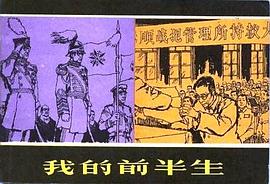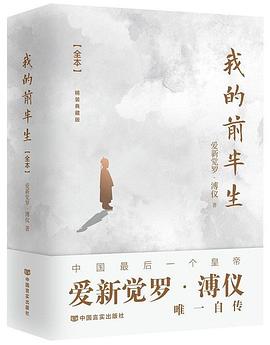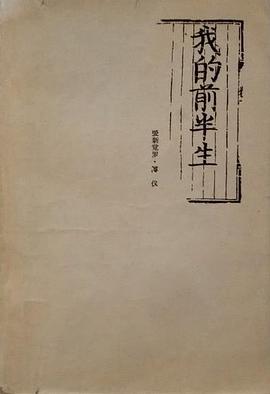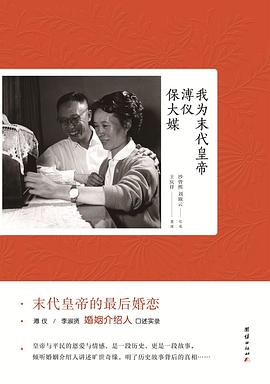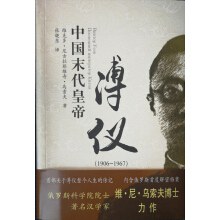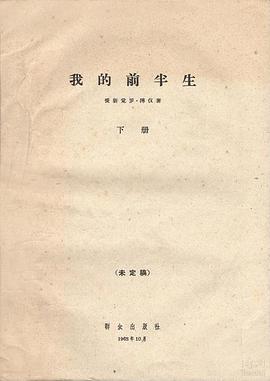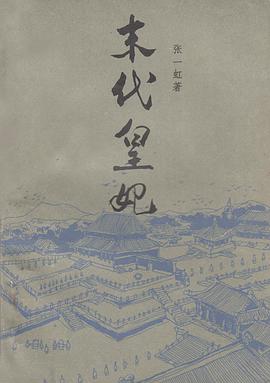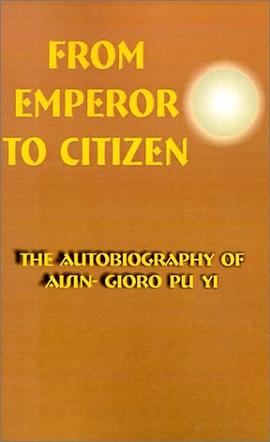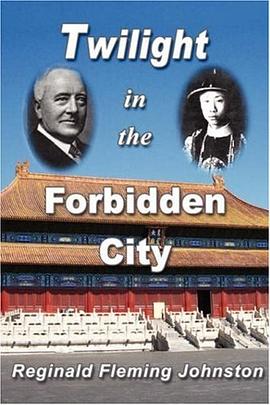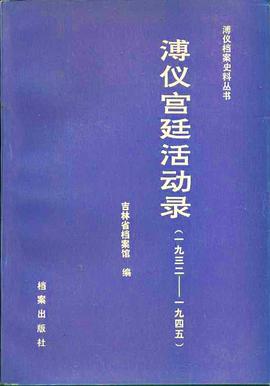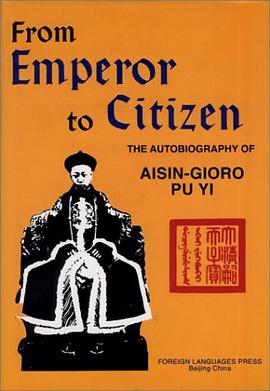

具体描述
From Emperor to Citien is the
autobiography of Pu Yi, the man who
was the last emperor of China. A
unique memoir of the first half of the
20th century as seen through the eyes
of one born to be an absolute
monarch, the book begins with the
author's vivid account of the last,
decadent days of the Ching Dynasty,
and closes with an introspective
self-portrait of the last Ching emperor
transformed into a retiring scholar
and citizen of the People's Republic
of China.
In detailing the events of the fifty
years between his ascension to the
throne and the final period of his life
as a quiet-living resident of Beijing,
Pu Yi reveals himself to be first and
foremost a survivor, caught up in the
torrent of global power struggles and
world conflict that played itself out
on the Asian continent through many
decades of violence and upheaval.
This firsthand description of the
dramatic events of Pu Yi's life was the
basis for the intemationally acclaimed
1987 Bemardo Bertolucci film The
Last Emperor which was named Best
Picture of the Year by the American
Academy of Motion Picture Arts and
Sciences. From Emperor to Citizen
readily lends itself to cinematic
adaptation as a personal narrative of
continuously significant and revea-
ling episodes.
Becoming emperor and then
forced to abdicate with the
establishment of the Republic of
China in 1911, all before he is seven
years old, Pu Yi continues to live in
the Forbidden City for another
decade, still treated as the Son of
Heaven by the moribund Ching court,
but in reality a virtual prisoner, with
little genuine human contact apart
from his beloved nurse Mrs. Wang,
his teacher Chen Pao-shen and his
English tutor Reginald Johnston.
When at the age of nineteen Pu Yi
is finally forced to vacate his isolated
existence within the Forbidden City,
he begins his long odyssey as the
dependent of the occupying imperial
Japanese regime, first in Tientsin, and
eventually installed as "emperor" of
the Japanese puppet state styled
Manchukuo in China's northeast
provinces. With the defeat of Japan
and the end of the Second World War,
Pu Yi faces a very uncertain future as
he is shunted off to Russia for five
years before retuming to a new China
transformed by revolution, where he
is confined in the Fushun War
Criminal Prison. Here he undergoes
several years of rehabilitation,
"learning how to become a human
being," as he calls it, before receiving
an official pardon and being allowed
to finally live as an ordinary citizen of
Beijing.
This autobiography is the culmi-
nation of a unique and remarkable
life, told simply, directly and frankly
by a man whose circumstances and
experiences were like no other.
作者简介
目录信息
CHAPTER ONE MY FAMILY
My Grandfather Prince Chun
My Maternal Grandfather Jung Lu
Tzu Hsi's Decision
My Father's Regency
A Prince's Household
CHAPTER TWO CHILDHOOD
Accession and Abdication
Living as an Emperor
Mothers and Son
Studying in the Yu Ching Palace
Eunuchs
My Nurse
CHAPTER THREE FROM THE FORBIDDEN CITY TO
THEJAPANESE LEGATION
The Yuan Shih-kai Period
The Restoration of 1917
The Chiettains of the Peiyang Clique
Undying Hope
Reginald Johnston
My Wedding
Internal Clashes
The Dispersal of the Eunuchs
Reorganizing the Household Department
The Last Days in the Forbidden City
In the Northern Mansion
Decision at the Crossroads
CHAPTERFOUR TIENTSIN
The Efforts of Lo Chen-yu
My Relations with the Commanders of the Fengtien Clique
Semionov and the "Second Chukeh Liang"
The Affair of the Eastern Mausolea
Consulate, Garrison and Black Dragon Society
Life in the Temporary Palace
CHAPTERFIVE TO THE NORTHEAST
The Unquiet Qyiet Garden
Differences Among the Japanese
Meeting Doihara
The Secret Crossing of the Pai River
Isolated
Disappointment
Meeting Itagaki
CHAPTER SIX FOURTEEN YEARS OF
"MANCHUKUO"
The Puppet Play Begins
Majesty Without Power
The Signing of the Secret Treaty and After
The Report of the League of Nations Commission of Enquiry
"Emperor" for the Third Time
The End of Illusion
Yoshioka Yasunori
"Imperial Rescripts'
Home Life
The Collapse
CHAPTER SEVEN IN THE SOVIET UNION
Fear and Illusion
Still Giving Myself Airs
1 Refuse to Admit My Guilt
CHAPTER EIGHT FROM FEAR TO RECOGNIZING MY
GUILT
I Expect to Die
Arriving in Fushun
Separated from My Family
Move to Harbin
Writing My Autobiography and Presenting My Seals
Changes in My Household
Contession and Leniency
Making Boxes
The Investigators Arrive
The Suffermgs and Hatred of the People of the Northeast
"You Can Never Escape the Consequences of Your Sins"
CHAPTER NINE 1 ACCEPT REMOULDING
How Shall 1 Be a Man?
It Is Up to Me
Why So Magnanimous?
The Changes Explain Everything
Meeting Relations
The Japanese War Criminals
"The World's Glory"
Another Visit
Labour and Optimism
The Test
Special Pardon
A New Chapter
INDEX
· · · · · · (收起)
读后感
一本奇书,一位奇人。 爱新觉罗溥仪,中国最后一个皇帝,关于他的故事和影视文学作品多如牛毛,此书作为溥仪唯一的自传,一直占据着最贴切资料的重要地位,但看过此书的人基本都能感受到,成书当时的特殊背景与溥仪的特别身份,注定让这本书成为后世众说纷纭的一个谜案。 首先...
评分有谁把溥仪当作一个人,一个有血有肉的人,一个有七情六欲的人,而不是工具呢? 慈禧太后没有,溥仪是他继续控制政治的工具。 摄政王没有,溥仪的存在保证他继续受到优待,以及一年四万八千量的银子。 太监和内务府没有,溥仪是他们的钱袋子。 年近二十岁的溥仪,被囚禁在...
评分随便翻书,清逊宣统帝溥仪的回忆录《我的前半生》。最近国内出版了一个“全本”,厚厚的大开本,比我少年时看过的那本气派许多。虽然是“全本”,但写作于一个特殊年代的基本内容并无改变,依旧是虔诚的忏悔谢罪与对新社会的推崇膜拜,最大的变化或许是增加了不少照片。 其中有...
用户评价
北京书市淘的,大学时读过中文版。旧书重读似春潮,内容倒感觉像是新读。最让人春潮涌动的是在抚顺,在哈尔滨监狱改造那段。飞龙不在天,也不再允许有飞龙的时候,方见人情,世味。但似乎又是昨日种种,都成今我的轮回。不过终于还是remoulding过来了,thanks to magnanimousness。
评分不知馋了多少水份:)
评分不知馋了多少水份:)
评分不知馋了多少水份:)
评分不知馋了多少水份:)
相关图书
本站所有内容均为互联网搜索引擎提供的公开搜索信息,本站不存储任何数据与内容,任何内容与数据均与本站无关,如有需要请联系相关搜索引擎包括但不限于百度,google,bing,sogou 等
© 2025 book.wenda123.org All Rights Reserved. 图书目录大全 版权所有

